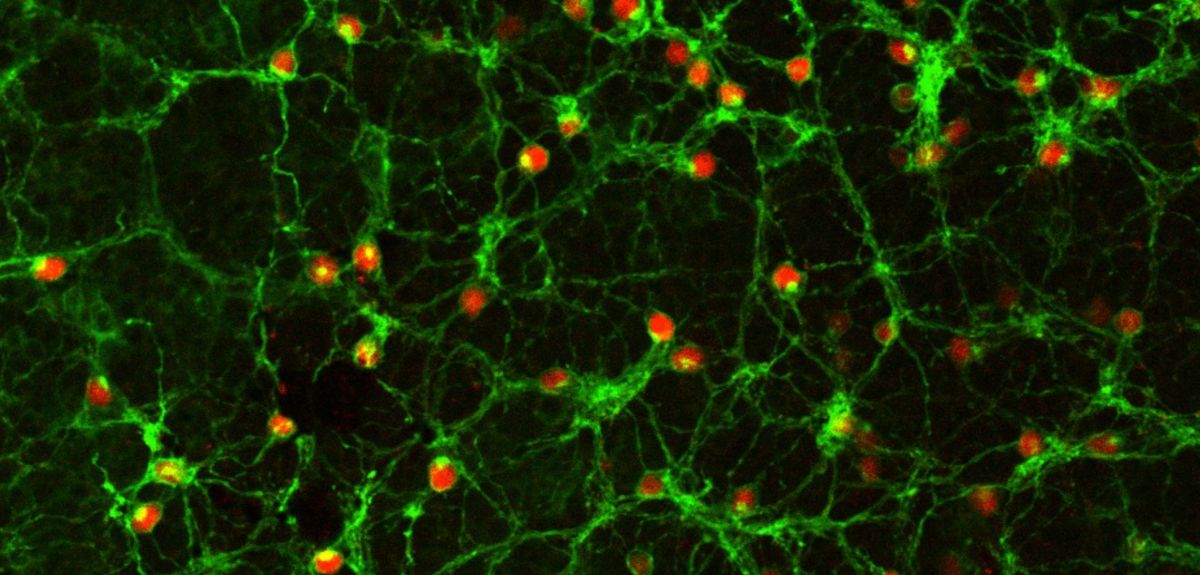
Image credit: Samantha de Silva
Gene therapy shows promise for reversing blindness
Researchers at Oxford University have shown how it might be possible to reverse blindness using gene therapy to reprogram cells at the back of the eye to become light sensitive.
Most causes of untreatable blindness occur due to loss of the millions of light sensitive photoreceptor cells that line the retina, similar to the pixels in a digital camera.
Inherited retinal degenerations such as retinitis pigmentosa affect around 1 in 4,000 people, causing a gradual loss of vision and eventual blindness. This is the most common cause of blindness in young people. However, even after a patient’s eyesight has been lost to this condition, the remaining cells in the retina that are not light-sensitive remain intact. The Oxford team has previously shown that these cells can be stimulated to mimic visual responses and restore vision by using a small electronic implant, restoring some vision.
In a new laboratory study in Oxford, Samantha de Silva and colleagues used a modified virus to inject a new gene into these cells, which then express a light sensitive protein, melanopsin, in the residual retinal cells in mice which were blind from retinitis pigmentosa.
The mice were monitored for over a year and they maintained vision during this time, being able to recognise objects in their environment which indicated a high level of visual perception. The cells expressing melanopsin were able to respond to light and send visual signals to the brain. The Oxford team has also been trialling an electronic retina successfully in blind patients, but the genetic approach may have advantages in being simpler to administer.
The research was led by Professors Robert MacLaren and Mark Hankins at the Nuffield Laboratory of Ophthalmology in Oxford. Samantha de Silva, the lead author of the study said: ‘There are many blind patients in our clinics and the ability to give them some sight back with a relatively simple genetic procedure is very exciting. Our next step will be to start a clinical trial to assess this in patients.’
Mark Hankins added: ‘Having first established back in 2005, that the expression of melanopsin alone was sufficient to render cells photoresponsive, if is exciting to see this approach moving toward a viable optogenetic therapy to restore vision in late stage retinal degeneration.’
Robert MacLaren added: ‘The effect of retinitis pigmentosa on families with the disease is devastating and we have spent many years working out new ways to slow the loss of sight and to begin restoring it. This new approach is exciting because by using a human protein that is already present in the eye we reduce the chances of causing an immune response.’
 Expert Comment: Why has Trump launched so many tariffs and will it cause a recession?
Expert Comment: Why has Trump launched so many tariffs and will it cause a recession?
 Expert Comment: Is it possible to support both AI innovation and human creativity?
Expert Comment: Is it possible to support both AI innovation and human creativity?
 Oxford unmasks the fraudsters behind the forgeries for April Fakes Day 2025
Oxford unmasks the fraudsters behind the forgeries for April Fakes Day 2025